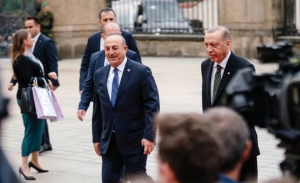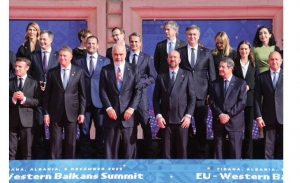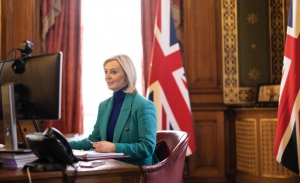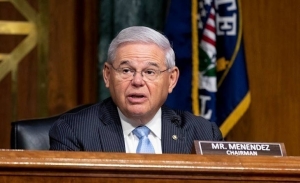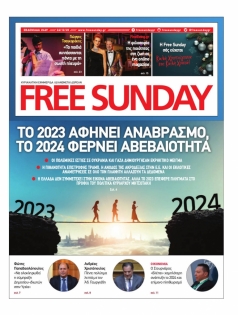
Την υπεράσπιση της ασυλίας του ζήτησε ο Γ. Κύρτσος από την πρόεδρο του Ευρωπαϊκού Κοινοβουλίου
Αίτημα στην πρόεδρο του Ευρωπαϊκού Κοινοβουλίου Ρομπέρτα Μέτσολα για την υπεράσπιση της κοινοβουλευτικής του ασυλίας από τους κοριούς Μητσοτάκη απεστειλε ευρωβουλευτής του Renew, Γιώργος Κύρτσος.
Ακολουθεί το ακριβές κείμενο της επιστολής:
Dear President,
With this letter I request that the European Parliament initiate the necessary proceedings to defend my parliamentary immunity in accordance with Rules 7(1) and (2) and 9(1) of the European Parliament's Rules of Procedure, following the revelation of my wiretapping by the Greek government.
More precisely, in November 2022, I was informed by reliable sources that my mobile phone - as well as my office and my home in Athens - had been wiretapped by the National Intelligence Service following instructions by the prime minister’s office. I was considered a threat to national security by a government, which is supposed to function within the framework of the European Rule of Law.
In December, I asked the relevant Independent Authority (ADAE - Authority guaranteeing the privacy of communications) to check my phones through the service provider.
The control documented that my phones had been tapped for a period of 18 months, which means that the wiretapping even covered the period when I was still a MEP representing the governing party of Nea Demokratia and EPP.
I went to court against the director of the National Intelligence Service, who resigned, the police officer who branded me as a threat to national security and the judge who authorized the wiretapping.
In light of the above, with this letter I request that the European Parliament initiate the necessary proceedings to defend my parliamentary immunity in accordance with Rules 7(1) and (2) and 9(1) of the European Parliament's Rules of Procedure, and the following EU legal base:
1. In Article 51 para. 1 of the Charter of Fundamental Rights of the European Union states that "The provisions of this Charter are addressed to the institutions, bodies, offices and agencies of the Union, with due regard for the principle of subsidiarity, and to the Member States only when they are implementing Union law. They shall therefore respect the rights, observe the principles and promote the application thereof, in accordance with their respective powers and within the limits of the competences of the Union as conferred on it in the Treaties”.
2. In this respect, the lifting of the confidentiality of my communications as a Member of the European Parliament, even if it is done in the context of the exercise of national competence, certainly raises a question of the application of EU law and more specifically of Article 8 of the Protocol on the immunities and Privileges of the Union, in terms of the conduct of an investigation against a Member of the European Parliament and therefore within the scope of the Charter of Fundamental Rights.
3. Article 7 of the EU Charter of Fundamental Rights states that "Everyone has the right to respect for his or her private and family life, home and communications".
4. Article 52 para. 3 of the Charter states that "In so far as this Charter contains rights corresponding to rights guaranteed by the Convention for the Protection of Human Rights and Fundamental Freedoms, the meaning and scope of those rights shall be the same as those laid down by the said Convention. That provision shall not prevent Union law providing more extensive protection.”
The level of protection of rights within the EU is therefore aligned with that under the ECHR and the provision of Article 8 ECHR and the relevant case law of the ECtHR on Article 8 (right to respect for private and family life) are therefore also called upon to apply to the application of the Charter.
In the present case, given that no permission was granted for my surveillance nor a request to waive my immunity as required was introduced and in any case and irrespective of my parliamentary status there is no national security reason for my surveillance, I request the European Parliament to defend my immunity, which has been violated by the Greek authorities.

